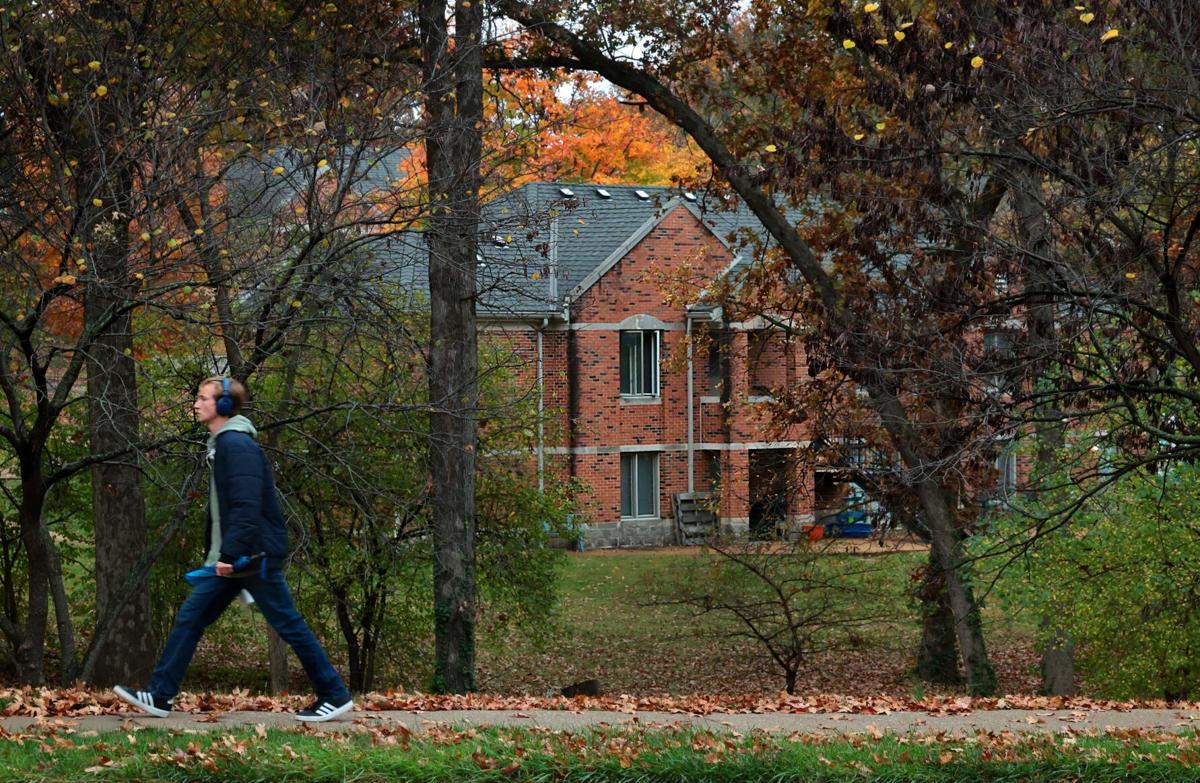CLAYTON ŌĆö A Washington University plan to build new athletic fields is raising old anxieties and frustrations from Clayton residents, who say the private school isnŌĆÖt being straightforward about its efforts.
The university wants to relocate its softball and baseball facilities to 27 acres on the western end of Concordia Seminary along Big Bend Boulevard. The athletic fields would replace the seminaryŌĆÖs student housing, which Concordia plans to move east towards its chapel.
The city of Clayton will hold a hearing on .
Steph Kukuljan and other business reporters bring you insights into ║³└Ļ╩ėŲĄ-area real estate and development.
But residents say Washington U. has not been transparent about its plans; it has instead proposed several different ideas for the site and asked the city in an October letter to build even more.
People are also reading…
ŌĆ£ItŌĆÖs just getting huge,ŌĆØ said Anne Martin, whose house would border the new fields. ŌĆ£ItŌĆÖs really tough to fight them.ŌĆØ
The university declined an interview request, saying itŌĆÖs too early in its planning process to discuss details of the project. In a statement, the university called it a collaborative process and said that it will work with the city and residents to deliver a project beneficial to the community.
ŌĆ£While we continue to explore possibilities for new auxiliary athletic spaces,ŌĆØ the university said in the statement, ŌĆ£we donŌĆÖt have a specific plan ... nor will we have one anytime soon.ŌĆØ

Residents here are battle-worn. TheyŌĆÖve grown weary of Washington UniversityŌĆÖs expansion into their neighborhoods. The university has bought the former Christian Brothers College High School along Clayton Road, homes in University City and houses in the Skinker Heights neighborhood near its Danforth campus. It has also bought up more of the Delmar Loop entertainment district.
ŌĆ£Wash. U. is very aggressive in their expansion,ŌĆØ said Martin, the neighbor. ŌĆ£Any time they have a chance to buy, they do.ŌĆØ
Two months ago, Washington University bought the Fontbonne University campus, adjacent to Concordia.
University officials have said in public meetings that the Fontbonne campus was not part of the equation when it and Concordia first approached the city about the athletic fields.
They said Washington U. and Concordia signed an 80-year land-use agreement over a year ago that allows the university to remake part of the seminaryŌĆÖs campus to the benefit of both institutions. The seminary said it wants to build new student housing closer to its chapel as part of , if Clayton approves the field plans.
The two approached the city of Clayton around the same time with their ŌĆ£conceptual ideasŌĆØ for the new athletic facilities, such as several fields and buildings.
Washington University hopes to consolidate several fields at the Concordia site: baseball and softball now at Forsyth Boulevard and Big Bend as well as intramural sports currently played at the old CBC high school on Clayton.
A to the project shows several different options of how the university would use the land.
But even members of ClaytonŌĆÖs Board of Aldermen have called out the university for its bare-bones proposals. Alderman Rick Hummell told the institution last month that it has provided ŌĆ£sketchy details at bestŌĆØ and worried that the city had not done enough to soothe residentsŌĆÖ worries.
ŌĆ£There are no details,ŌĆØ said Martin, the neighbor.
She has lived in her Tuscany Park neighborhood for more than 70 years and said traffic on Big Bend is a nightmare. She got into an accident while trying to leave her neighborhood and worries how much worse it would get with the athletic fields.
She also questions whether the land is the right place for the fields and worries about the project cutting down trees.

Housing units along Founders Way on the west side of campus at Concordia Seminary might be replaced with Washington University athletic fields as seen on Saturday, Nov. 9, 2024. The university is seeking zoning changes from the city of Clayton to build the fields.
ThatŌĆÖs a concern her neighbor Jonathan Katz also has. HeŌĆÖs not a bird watcher, but he does enjoy hearing the owls and seeing the occasional fox. He worries what could be lost if the university gets its way.
ŌĆ£ItŌĆÖs a nice piece of nature,ŌĆØ Katz said. ŌĆ£It shouldnŌĆÖt be destroyed.ŌĆØ
Clayton officials are trying to assuage fears. They said theyŌĆÖve already swatted down the universityŌĆÖs requests from the October letter ŌĆö capping the number of people from 5,000 spectators to 900 ŌĆö and will require an 80-foot buffer instead of the normal 15 feet and require the tree canopy that borders neighborhoods to stay.
ŌĆ£This is not a blank check to Wash. U.,ŌĆØ Clayton City Manager David Gibson said Monday.
The cityŌĆÖs plan for special zoning, called an overlay district, also would create further restrictions, he said. ItŌĆÖs a tool Clayton has used elsewhere, such as along Maryland Avenue and at the former CBC campus.
Previously, the city would issue a conditional-use permit for each of Washington UniversityŌĆÖs new buildings, creating a complicated patchwork of varying rules that made enforcement a nightmare, Gibson said.
The overlay district would make the regulations more uniform and would still require the university to submit plans and traffic, light and sound studies for each subsequent development.
Mayor Michelle Harris calls the overlay district ŌĆ£state-of-the-art requirements.ŌĆØ
She said she understands why residents are concerned. But thereŌĆÖs only so much the city can do to regulate private property, she said.
ŌĆ£This will happen whether we restrict it or not,ŌĆØ Harris said.
This, she said, is the cityŌĆÖs big opportunity to influence the project.
The site is currently zoned for single-family residential and university use. The city Board of AldermenŌĆÖs final vote on the overlay district is slated for Nov. 26.
Washington University will then have to submit specific site plans to the city.
Editor's Note: The story has been updated to correct Rick Hummell's name and the site's zoning.
View life in ║³└Ļ╩ėŲĄ through the Post-Dispatch photographers' lenses. Edited by Jenna Jones.















